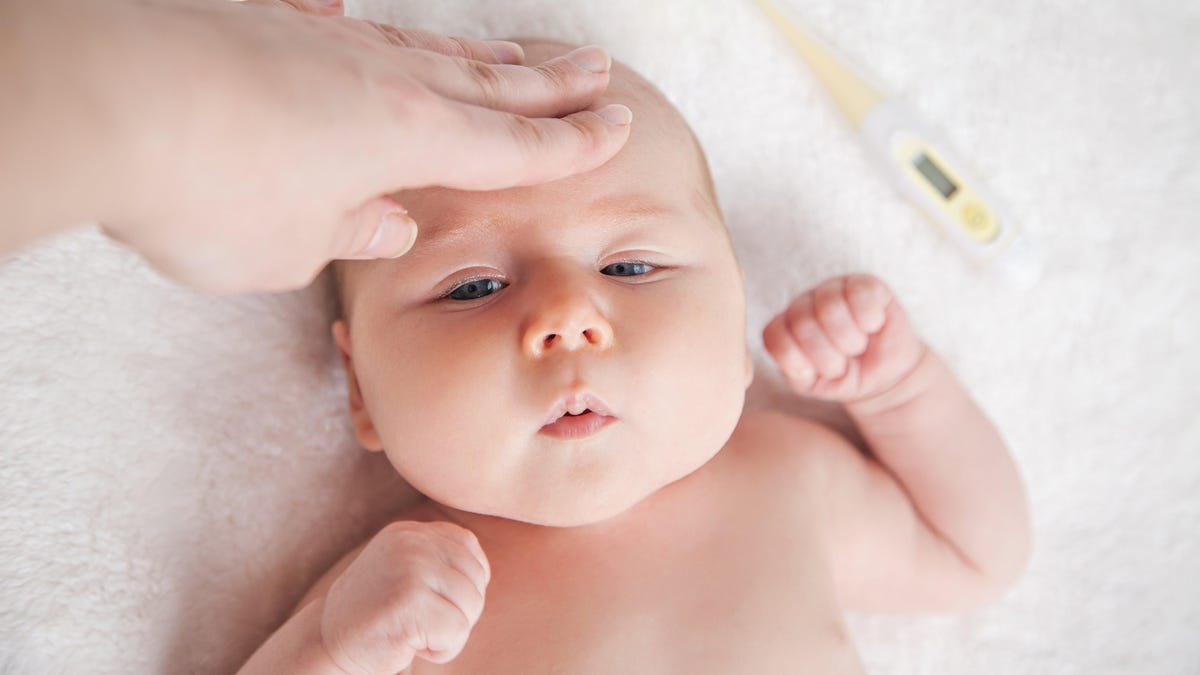
Parechovirus isn’t a new virus, but it is the subject of a recent CDC health alert due to a possible uptick of cases in infants. The virus can cause serious illness in very young babies. So how worried do parents need to be?
What is parechovirus?
“Parechovirus infections are common in childhood,” notes the American Association of Pediatrics in a news article. Most kids are exposed to it before they get to kindergarten. Typical symptoms in toddlers and preschool-aged children are fever, rash, and respiratory symptoms.
The virus can spread through respiratory and gastrointestinal routes. (Or to put it in terms of things children do, it can spread through coughs and sneezes, or by a kid putting something with traces of poop germs on it into their mouth.) The virus is most common in summer and fall.
Normally, parechovirus is just one of many mysterious viruses that kids catch and get over quickly. But in young babies, some viruses can cause very serious illness, and parechovirus is one of them. The CDC says that, “in infants less than 3 months, severe illness can occur, including sepsis-like illness, seizures, and meningitis or meningoencephalitis, particularly in infants younger than 1 month.”
G/O Media may get a commission

Summer Styles
All these shirts are $26 with a Kinja exclusive deal.
Why is parechovirus in the news?
The CDC noticed several cases of parechovirus in recent months, and all of the cases tested were of the type known as PeV-A3, which tends to cause more serious symptoms than other strains. But does this mean this virus is more common than usual, or that cases are more serious than usual? We don’t know.
“Because there is presently no systematic surveillance for PeVs [parechoviruses] in the United States, it is not clear how the number of PeV cases reported in 2022 compares to previous seasons,” the CDC says. Children are also not routinely tested for parechovirus, so we don’t know how many cases are occurring in kids who are only mildly sick or who get the virus without getting sick at all.
How do I know if my child has parechovirus?
If your child only has mild symptoms, you would probably never know for sure if it was parechovirus. Remember, it’s a common childhood virus. As infectious disease specialist Claire Bocchini told USA Today, “in children who are otherwise ‘OK’ with a mild illness, we don’t test them for everything. It’s very expensive, and it doesn’t change the management.” (Management, as in how you deal with the virus. If the outcome is just to keep the kid comfortable and wait it out, it doesn’t really matter which virus it is.)
It’s a different story with babies. The CDC alert mentions that parechovirus is a particular concern among children under 3 months old, where it can potentially be deadly. But the health alert they published is aimed at providers, not parents. The message is essentially letting doctors know that they should include parechovirus in their list of possibilities when considering what might be wrong with a seriously ill infant.
“In that age group, any baby with a fever should be getting evaluated, which at minimum includes blood work under the age of 60 days,” says Heather Giambo, a pediatric emergency physician in New York City. They emphasized that parents should seek medical care for a child that young with a fever, no matter the suspected cause. In those early months of life, the American Association of Pediatrics considers a temperature of 100.4 to be a fever worthy of immediate medical attention.
Credit: Source link



